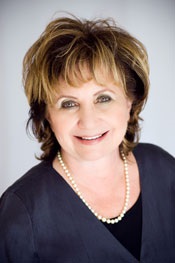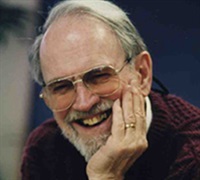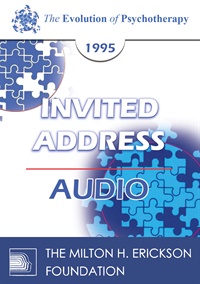EP95 Invited Address 03a - Shame: How to Bring a Sense of Right and Wrong Into the Family - Cloe Madanes, Lic Psychol
- Average Rating:
- Not yet rated
- Topic Areas:
- Invited Addresses | Psychotherapy | Shame | Family Systems
- Categories:
- Evolution of Psychotherapy | Evolution of Psychotherapy 1995 | Pioneers in Couples and Family Therapy
- Faculty:
- Cloe Madanes, HDL, LIC | James Bugental, PhD
- Course Levels:
- Master Degree or Higher in Health-Related Field
- Duration:
- 1:27:24
- Format:
- Audio Only
- Original Program Date:
- Dec 13, 1995
- License:
- Never Expires.
Description
Description: This discussion examines the role of shame in family systems and society, highlighting its function in moral development and social cohesion. A therapeutic model for juvenile sex offenders, involving public apologies and reparations, reports a 96% success rate in preventing reoffense. The conversation explores how public acknowledgment can repair relationships and address collective trauma, while also distinguishing between shame, guilt, and regret in therapeutic practice.
Syllabus Description: Madanes will present guidelines for the positive use of shame in couples and families. Stories from therapy will be told to reveal complicated problems in which shame, sex, power and love are interconnected. Looking at extreme cases of violence will throw light on when it is appropriate to experience shame and how to recover from the pain that shame represents. In our families and in society, we use shame as a secret weapon in restraining the abuse of power and the expression of violence. Yet there are various sides to shame. It can be experienced by victims instead of victimizers, and it can bring about compassionate deeds or lead to guilt and failure. Feelings of shame often conceal deep, hidden issues inside a family, an organization, or a nation. The most important principle of Madanes' approach to the therapy of violence is the redistribution of responsibility and shame, so that the victimizer, and not the victim, carries the responsibility and the shame. Just as violence is the most serious problem between nations, among ethnic groups, and in the streets of our cities, so it is a serious problem in the family. The abuse of wives by husbands and of children by parents constitutes the most insidious, prevalent and destructive mental health problem that therapists are called to solve today. Madanes will offer some strategies to solve these problems.
Educational Objectives:
- To list three criteria to identify when shame is an appropriate emotion.
- To describe three ways to redistribute who carries shame in the family.
- To list four ways to transform shame into reparation.
*Sessions may be edited for content and to preserve confidentiality*
Credits
Handouts
| Timestamped Transcript (997.8 KB) | 24 Pages | Available after Purchase |
| Ericksonian Learning Snapshot (276.2 KB) | 3 Pages | Available after Purchase |
Faculty

Cloe Madanes, HDL, LIC Related Seminars and Products
Cloé Madanes, HDL, LIC, is a world-renowned innovator and teacher of family and strategic therapy and one of the originators of the strategic approach to family therapy. She has authored seven books that are classics in the field: Strategic Family Therapy; Behind the One-Way Mirror; Sex, Love and Violence; The Violence of Men; The Secret Meaning of Money; The Therapist as Humanist, Social Activist and Systemic Thinker; and Relationship Breakthrough. She has presented her work at professional conferences all over the world and has given keynote addresses for The Evolution of Psychotherapy Conference, the American Association of Marriage and Family Therapy; the National Association of Social Workers, The Erickson Foundation, the California Psychological Association and many other national and international conferences. Madanes has won several awards for distinguished contribution to psychology and has counseled outstanding individuals from all walks of life.

James Bugental, PhD Related Seminars and Products
James Bugental, PhD, was one of the predominant theorists and advocates of the Existential-Humanistic Therapy movement. He received his Ph.D. from Ohio State University in 1948, was named a Fellow of the American Psychological Association in 1955, and was the first recipient of the APA's Division of Humanistic Psychology's Rollo May Award. James devoted himself to teaching and writing; he was also an Emeritus Professor, Saybrook Institute, and an Emeritus Clinical Lecturer (formerly Associate Clinical Professor), Department of Psychiatry, Stanford University Medical School. In 1987, he was the recipient of the first annual Rollo May Award of the Mentor Society "for contributions to the literary pursuit," and in 1986, he received a certificate "in recognition of the distinguished contribution to the discipline of Clinical Psychology" from the Division of Clinical Psychology, American Psychological Association. He was a past president of the Association for Humanisitic Psychology and served on the editorial boards of eight professional journals. Bugental has written 150 articles, reviews, comments, and chapters in books edited by others.


